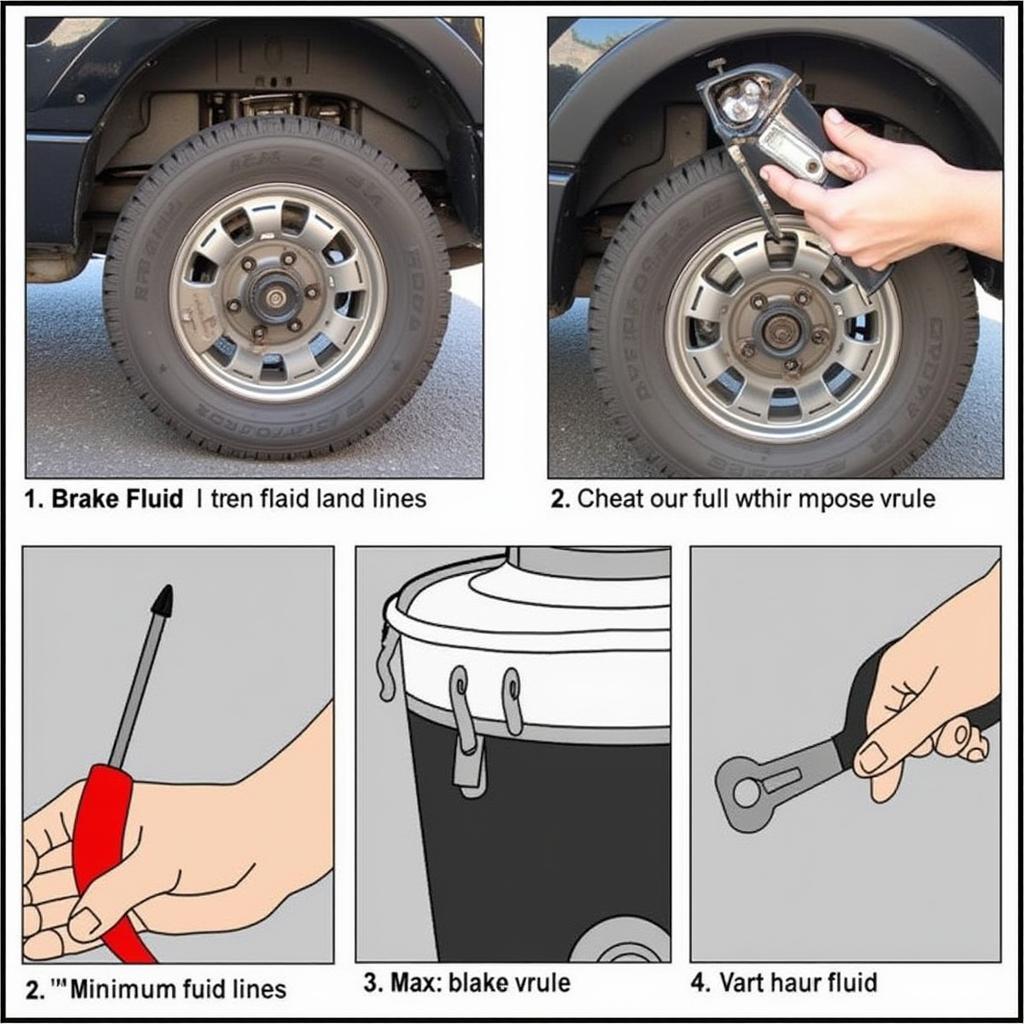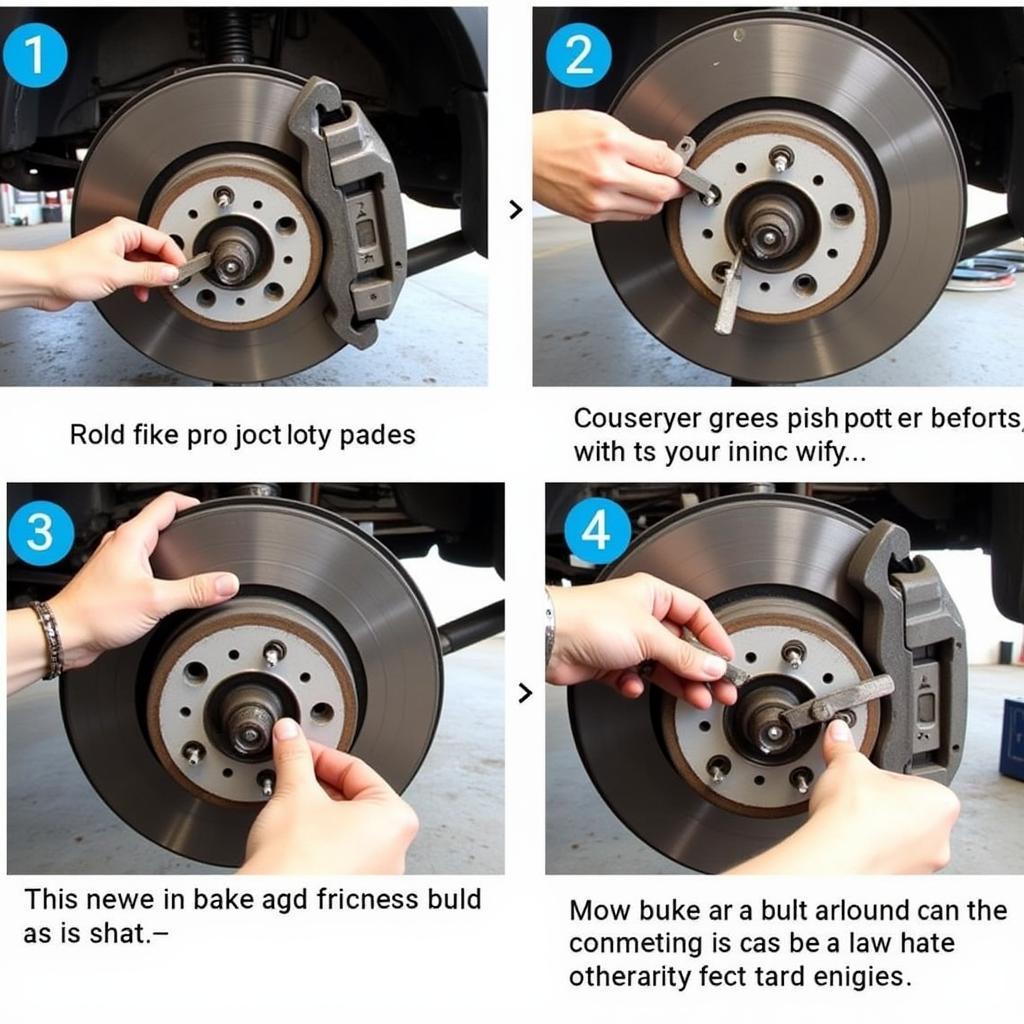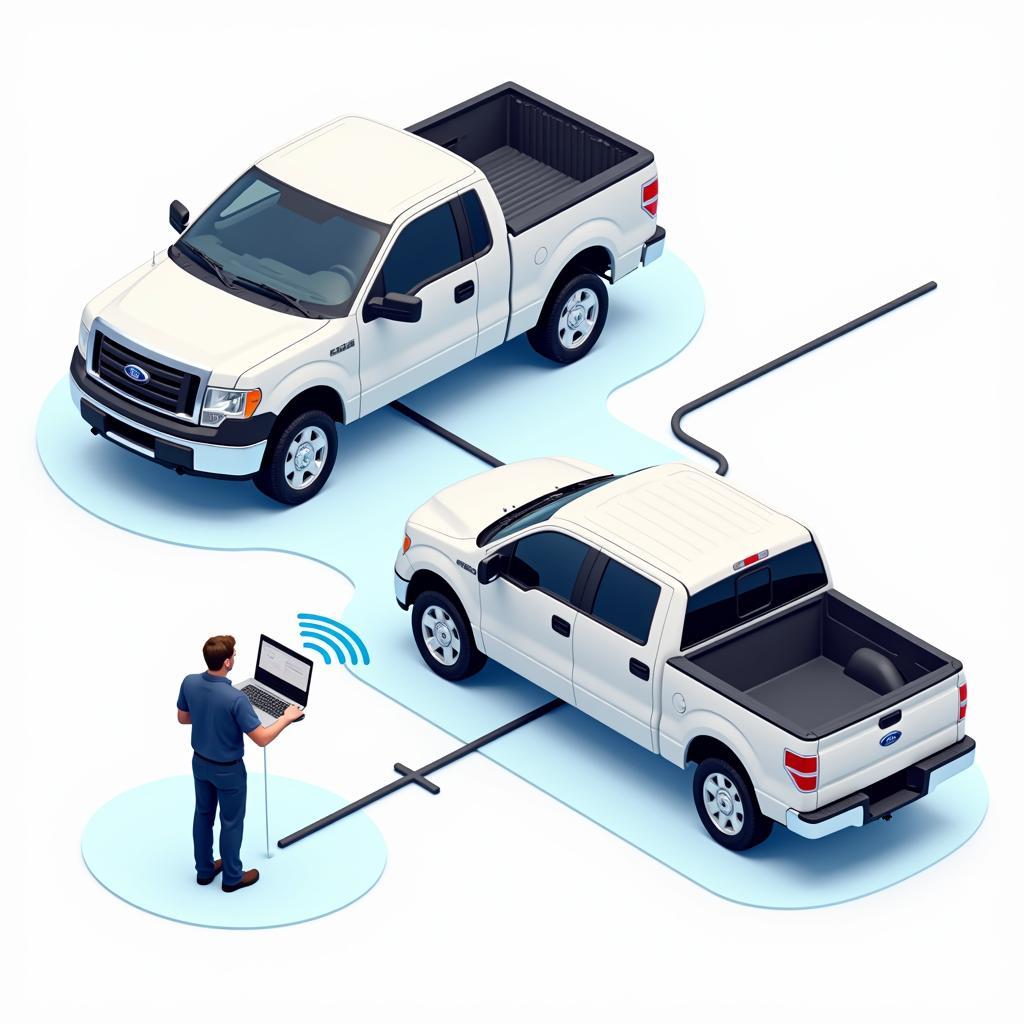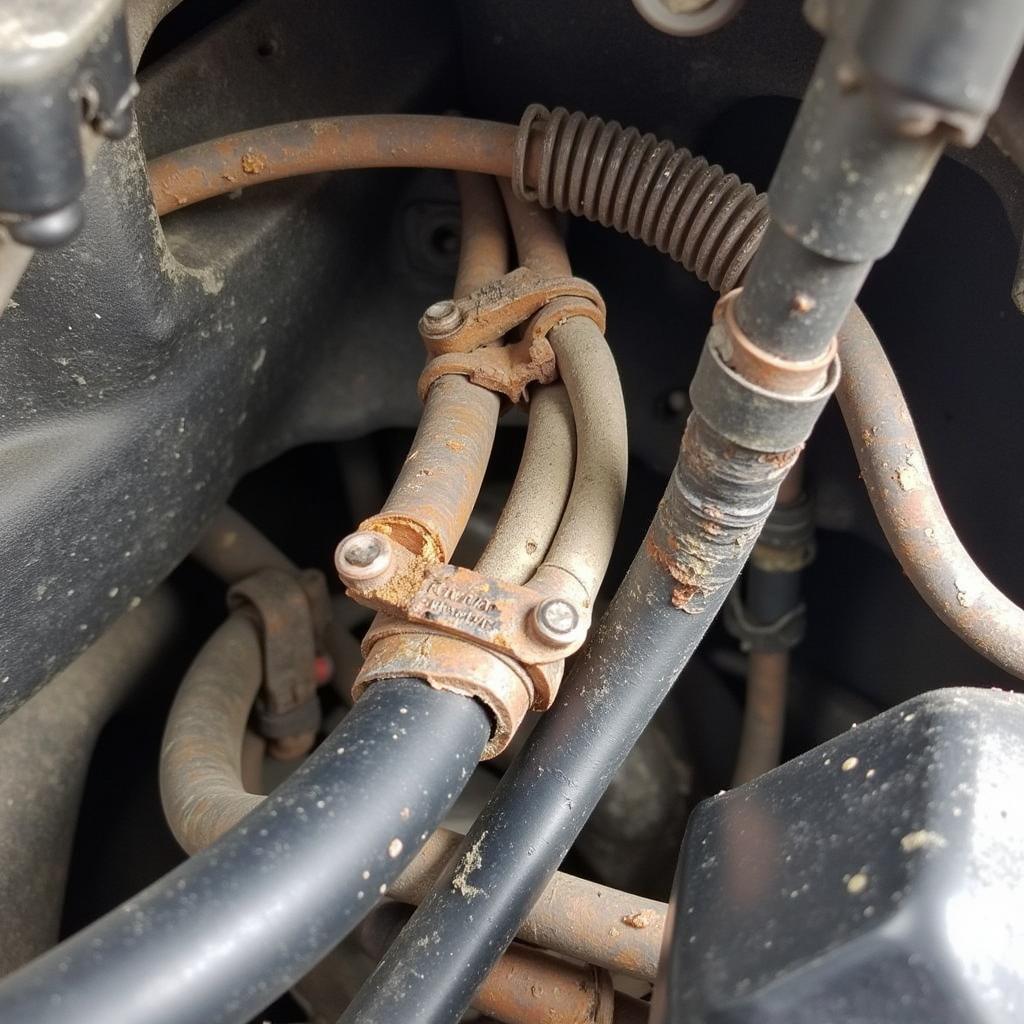The dreaded “Check Brake System” warning on your 2010 F150 can be a real headache. This article provides a comprehensive guide to understanding, diagnosing, and fixing this common issue, offering both DIY solutions and insights into when professional help is necessary. From simple checks to more complex diagnostics, we’ll cover everything you need to know to get your truck back on the road safely.
Understanding the 2010 F150 Check Brake System Warning
The “Check Brake System” warning light is your truck’s way of telling you something’s amiss with the braking system. It’s not a specific diagnostic code, but rather a general alert. Ignoring this warning is risky, as it could indicate a serious problem that compromises your safety. Don’t panic, though! It doesn’t always mean a complete brake failure is imminent. It could be something as simple as low brake fluid.
Common Causes of the Check Brake System Warning in a 2010 F150
Several factors can trigger the “Check Brake System” warning in a 2010 F150. Let’s explore some of the most common culprits:
- Low Brake Fluid: This is often the simplest and easiest fix. Over time, brake pads wear down, and the brake fluid level drops.
- Worn Brake Pads: Thin brake pads can activate the warning light. Regular inspection is crucial for catching this before it becomes a bigger issue.
- Faulty Brake Sensor: A malfunctioning sensor can send incorrect signals, triggering the warning even if there’s no actual problem.
- ABS Issues: Problems with the Anti-lock Braking System (ABS), such as a failing pump or sensor, can also illuminate the warning light.
- Brake Line Leaks: Leaking brake lines are a serious safety concern and require immediate attention. Look for signs of fluid leaks around the wheels and under the vehicle.
- Parking Brake Issues: If the parking brake is not fully disengaged, it can sometimes trigger the warning.
 Checking Brake Fluid in a 2010 F150
Checking Brake Fluid in a 2010 F150
Diagnosing the Problem: What to Check First
Before rushing to the mechanic, you can perform some basic checks yourself:
- Check the Brake Fluid Level: Open the hood and locate the brake fluid reservoir. The level should be between the minimum and maximum marks. If it’s low, add brake fluid that meets the specifications for your truck.
- Inspect the Brake Pads: Visually check the brake pads through the wheel spokes. If they appear thin (less than ¼ inch), they likely need replacement.
- Check the Parking Brake: Ensure the parking brake is fully released.
When to Seek Professional Help for your 2010 F150 Brake System
If the basic checks don’t reveal the problem, or if you notice brake fluid leaks, it’s time to consult a qualified mechanic. Further diagnostics might involve using a code reader to pinpoint the specific issue.
 Inspecting Brake Pads on a 2010 F150
Inspecting Brake Pads on a 2010 F150
Advanced Diagnostics and Remote Software Solutions
Modern vehicles like the 2010 F150 rely heavily on software. Sometimes, glitches in the software can trigger warning lights. Remote software diagnostics and programming can often address these issues without requiring physical access to the vehicle.
“Remote diagnostics and programming are invaluable tools for addressing software-related brake system issues. They allow us to identify and fix problems quickly and efficiently, often saving the customer time and money,” says John Miller, Senior Automotive Diagnostic Technician at Advanced Auto Solutions.
 Remote Diagnostics on a 2010 F150
Remote Diagnostics on a 2010 F150
Preventing Future 2010 F150 Check Brake System Warnings
Regular brake system maintenance is key to preventing future issues:
- Regular Brake Fluid Checks: Check your brake fluid level at least every six months.
- Timely Brake Pad Replacement: Replace brake pads before they wear down too thin.
- Annual Brake System Inspection: Have a professional inspect your entire brake system annually.
“Preventive maintenance is the best way to avoid brake system problems. Regular checks and timely repairs can save you from costly repairs and ensure your safety on the road,” advises Sarah Johnson, Certified Automotive Technician at Johnson’s Auto Repair.
Conclusion
The “2010 f150 check brake system warning” can be concerning, but addressing it promptly is crucial for your safety. By understanding the potential causes and following the troubleshooting steps outlined in this article, you can effectively diagnose and resolve the issue or determine when professional assistance is necessary. Remember, regular brake maintenance is essential for preventing future problems and ensuring safe and reliable operation of your 2010 F150.

